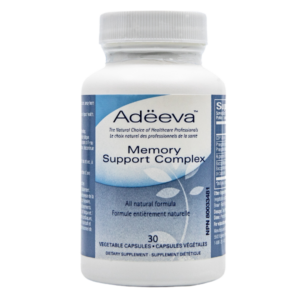
Functional MRI Predicts Alzheimer’s Disease Onset with Over 80 Percent Accuracy: An Absolute Breakthrough
Source: Nature Mental Health (June 6, 2024)
Lifestyle Medicine Update (June 13, 2024)
As you know, with our aging population the incidence of Alzheimer’s disease is increasing quite rapidly. There are a variety of blood tests and other tests that may help to identify people who are at risk for this disease, but no one test has been established as the gold standard. And some of the tests are quite invasive, such as drawing out fluid from the spine’s cerebrospinal fluid with a needle. So, the study published on June 6, 2024, in the journal Nature Mental Health, appears to be a true game-changer.
Reporting on subjects who are part of the large UK Biobank Study the study utilized functional MRI of the brain, evaluating over 1100 subjects, mean age 70.4 years of age. Using a machine learning tool (AI) that looked for specific changes in the brain region known as the default-mode network (DMN) the learning tool was able to identify with 82% accuracy which subjects would develop clinical dementia over the next 9 years. The baseline fMRI’s were performed between the years 2006 and 2010. By the year 2024 the researchers had their results. The great thing about this is that functional MRI assessment is non-invasive and there is no radiation exposure. There are no needles, risk of bleeding or infection, or puncturing a nerve, no radiation risk (unlike mammograms), or risk of colon rupture (which can occur during colonoscopies).
However, the question remains what to do if you see changes on the MRI that suggest a high-risk of future dementia. Well, the FDA just approved a new drug (Donanemab) that helps to breakdown plaque and was shown to slow early-stage Alzheimer’s’ s progression by about 30%.
But it’s not a cure, and there are some serious adverse effects (including death from brain bleeds) that can occur with IV administration of this drug. So, it still comes down to nutrition and lifestyle practices that give you the best chance of not developing dementia and Alzheimer’s disease.
Let’s quickly recap what those strategies include:
Ideally, keep your cholesterol level below 3.9 mmol/L (150 mg/dl) and your LDL-cholesterol below 1.5 mmol/ (58 mg/dl). This can be accomplished in most cases by a prudent diet and regular exercise.
Keep your fasting blood sugar below 5 mmol/L (90mg/dl)
Remain at or near your ideal body weight
Avoid brain-damaging chemicals (including alcohol and cigarettes)
Keep your brain active and engaged
Avoid head injuries (wear a helmet during high-risk sports)
Keep your blood pressure at or below 120/70
Participate in regular endurance exercise
Drink Green Tea daily, if possible
Regarding Supplementation I suggest that you:
Take a high potency multiple vitamin and mineral each day that contains a B-50 complex and enriched levels of antioxidants and 1,000 IU of Vitamin D
Take an Essential Fatty Acid Supplement daily that contains fish, flaxseed and borage seed oils
At age 40 and beyond take a supplement each night that contains .5 mg – 3 mg of melatonin (Find a dose that helps you get a goodnights sleep)
At age 55 and beyond add an additional supplement that contains:
CDP-choline
Phosphatidylserine
Bacopa Monnieri
Huperzine A
These four nutrients work together to help maintain optimal levels of the brain’s memory chemical, (acetylcholine), which typically declines after the age of 55.
Ok, I have provided a link to the research paper that explains the breakthrough dementia detecting functional MRI study I reported on in this update, as well as a link to the FDA approval of the drug Donanemab. Thanks for watching and I encourage to employ the nutritional and lifestyle medicine strategies shown to protect your brain against the development of dementia, as best you can.
References:
Ereira S et al. Early detection of dementia with default-mode network effective connectivity. Nature Mental Health. June 6, 2024. Early detection of dementia with default-mode network effective connectivity | Nature Mental Health
FDA Advisers Endorse Eli Lilly’s Early-Stage Alzheimer’s Drug. FDA advisers endorse Eli Lilly’s early-stage Alzheimer’s drug donanemab | CNN
FDA Panel Backs Donanemab: New Hope for Early Alzheimer’s Treatment – Neuroscience News
Eat Smart, Live Well, Look Great,
Dr. James Meschino
Recommended Supplements

Dr. James Meschino
ABOUT THE AUTHOR
Dr. James Meschino, DC, MS, ROHP, is an educator, author, and researcher having lectured to thousands of healthcare professionals across North America. He holds a Master’s Degree in Science with specialties in human nutrition and biology and is recognized as an expert in the field of nutrition, anti-aging, fitness, and wellness as well as the author of numerous books.

